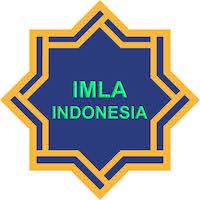Changes Of The Meaning In Arabic Words And Expressions On Students Daily Conversation
DOI:
https://doi.org/10.18592/jams.v9i1.5049Keywords:
Semantic, Change, Conversation, ArabicAbstract
Arabic is a language that is often used in modern Islamic boarding schools in Indonesia as a means of communication for students in their daily conversations. When Arabic is used among students as a communication tool, Arabic words or expressions arise that have changed from the meaning of fusha or from the initial meaning to meanings that other people, especially native speakers of the language cannot understand, except by the students themselves. Pondok Modern An Najah Putra is a Modern Islamic Boarding School educational institution that requires its students to use Arabic and English in daily conversation, this language obligation raises the phenomenon of changing meanings in sentences or expressions in the Arabic language they use which can only be understood by their environment. Therefore, this research is focused on changing Arabic words and expressions of the students of Pondok Modern An Najah Putra in daily conversation. To achieve this goal, the researcher uses a type of field research by using a descriptive qualitative approach to describe the facts that exist in the research area with the main subject of research changing meaning and the object of research is the words and expressions that exist in the students of Pondok Modern An Najah Putera. both verbally and written. The results of this study are words and expressions that have exchanged their meaning from the meaning of fusha or the initial meaning to other meanings that are only understood by students, forms of meaning exchange such as narrowing of meaning, expansion of meaning, and exchanges in new meanings with associations, exchanges in meaning. the meaning of mashdar to fi'il, exchanging the meaning of mashdar to ismul fa'il, exchanging the meaning of shifah musyabbah bi ismi al-fail to mashdar, exchanging the meaning of ismul fa'il to isim maf'ul, exchanging ismul maf'ul to fi'il, and exchanging harf to fi'il. Because the change in meaning is the influence of Indonesian in a variety of conversations, the emergence of the need for Arabic expressions, the influence of the Banjar language in various conversations, deviations in understanding Arabic, which is often used among students.References
Al-Hajj, Ustman Idris Hasan, and Ustman Idris Yahya Idris. “At Tagayyur Ad Dilali Fi (Surati Yusuf).” PhD Thesis, Universitas Sudan Lil Ulum wa Tiknulujiya, 2017.
Anan Sutisna. Metode Penelitian Kualitatif Bidang Pendidikan. UNJ PRESS, 2021.
Ansori, Mahfud Saiful. “PERUBAHAN MAKNA BAHASA: SEMANTIK-LEKSIOLOGI,” SEMIOTIKA: Jurnal Ilmu Sastra dan Linguistik, Vol. 22, No. 2, 2021.
Bolikhsayim and Thorik. “Zohiratu At Taghayyur Ad Dilali Lil Alfadzi Fi As Siyaqi Al Qurani.” PhD Thesis, Universitas Al Ikhwah Muntawari, 2018.
Ediyani, Muhammad. “At Taghayyur Ad Dilali Fi Talimi Ilmi Ad Dilalah,” ’arabiyya: Jurnal Studi Bahasa Arab, Vol. 8, No. 1, 2019.
Fahrurrozi, Aziz. “Pembelajaran Bahasa Arab: Problematika dan Solusinya,” Arabiyat: Jurnal Pendidikan Bahasa Arab dan Kebahasaaraban, Vol. 1, No. 2, 2014.
Hidayat, Nandang Sarip. “Problematika Pembelajaran Bahasa Arab,” An-Nida’, Vol. 37, No. 1, 2012.
Kustriyono, Erwan. “Perubahan Makna dan Faktor Penyebab Perubahan Makna dalam Media Cetak (Kajian Semantik Jurnalistik),” Bahastra, Vol. 35, No. 2, 2016.
Kustriyono, Erwan. & Kurniawati, Vega Prisma. “Perubahan Makna dan Faktor Penyebab Perubahan Makna dalam Media Cetak,” Jurnal Bahastra. Universitas Pekalongan, Vol. 35, No. 2, 2016.
Maskur, Abu, & Anto, Puji. “Metode Pembelajaran Bahasa Asing Arab di Pondok Pesantren Modern,” El Banar: Jurnal Pendidikan dan Pengajaran, Vol. 1, No. 1, 2018.
Mubarak, Faisal. Muradi, Ahmad. & Rahman, Ahmad Abdul. “Izdiwajiyatul Lughah dan Problematikanya dalam Pembelajaran Bahasa Arab,” Shaut Al-’Arabiyah, Vol. 9, No. 2, 2021.
Munaf, Saadah, Muradi, Ahmad. Mubarak, Faisal, & Noor, Fatwiah. “Al-Istifādah Min al-Lahjah al-Ḥijāziyyah Fī Tadrīs al-Asālīb al-Naḥwiyyah Li al-Nāṭiqīn Bi Ghairi al-‘Arabiyyah,” Lughawiyyat: Jurnal Pendidikan Bahasa dan Sastra Arab, Vol. 4, No. 1, 2021.
Muradi, Ahmad. “Tujuan Pembelajaran Bahasa Asing (Arab) di Indonesia.” Jurnal Al Maqayis, Vol. 1, No. 1, 2014.
Muzaiyanah, Muzaiyanah. “Jenis Makna dan Perubahan Makna,” Wardah, Vol. 13, No. 2, 2012.
Rohbiah, Tatu Siti. “Perubahan Makna Kata Serapan Bahasa Arab dalam Bahasa Inggris pada Istilah Ekonomi,” Buletin Al-Turas, Vol. 23, No. 2, 2017.
Saputri, Eri Endah, & Prabawa, Andi Haris. “Perubahan Makna Dalam Karangan Narasi Siswa Kelas X SMA Negeri 1 Geyer Tahun Pelajaran 2015/2016,” Universitas Muhammadiyah Surakarta, 2016.
Setyosari, H. Punaji. Metode Penelitian Pendidikan & Pengembangan. Prenada Media, 2016.
Shohiburrida, Muhammad. “Perubahan Makna pada Komentar Pertandingan Sepak Bola Timnas Indonesia U19 Piala Aff 2017,” BAPALA, Vol. 5, No. 2, 2018.
Ukhrawiyah, Faizetul. “Perubahan Makna Kosakata Bahasa Arab yang Diserap ke dalam Bahasa Indonesia.” Al-Ma ‘rifah: Jurnal Budaya, Bahasa, Dan Sastra Arab, Vol. 16, No. 2, 2019.
Wahab, Muhbib Abdul. “Peran Bahasa Arab dalam Pengembangan Ilmu dan Peradaban Islam.” Arabiyat: Jurnal Pendidikan Bahasa Arab Dan Kebahasaaraban, Vol. 1, No. 1, 2014.
Yanottama, Arrijal Nagara. & Rochimah, Siti. “Analisis Dampak Perubahan Artefak Kebutuhan Berdasarkan Kedekatan Semantik pada Pengembangan XP,” Jurnal RESTI (Rekayasa Sistem dan Teknologi Informasi), Vol. 5, No. 4, 2021.
Zahra, Musaidiyah. “Awamil At Taghayyur Addilali,” Annales Du Patrimoine, Vol. 16, No. 16, 2016.
Zaini, Hisyam. “PERUBAHAN MAKNA LEKSIKAL DALAM PEMAKAIAN BAHASA ARAB (Studi Kasus Pondok Modern Gontor),” Adabiyyāt: Jurnal Bahasa dan Sastra, Vol. 9, No. 1, 2010.
Downloads
Published
Issue
Section
License
Authors who publish with this journal agree to the following terms:
- Authors retain copyright and grant the journal right of first publication with the work simultaneously licensed under a Creative Commons Attribution License that allows others to share the work with an acknowledgement of the work's authorship and initial publication in this journal.
- Authors are able to enter into separate, additional contractual arrangements for the non-exclusive distribution of the journal's published version of the work (e.g., post it to an institutional repository or publish it in a book), with an acknowledgement of its initial publication in this journal.
- Authors are permitted and encouraged to post their work online (e.g., in institutional repositories or on their website) after the submission process, as it can lead to productive exchanges, as well as earlier and greater citation of published work.






